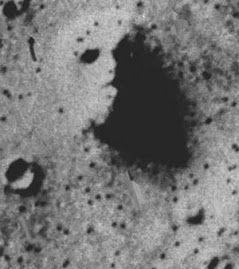skip to main |
skip to sidebar
Hysterical Blindness

or Conversion Disorder. This term refers to a rare psychosomatic medical condition, rather than to any physical impairment of sight. It is generally motivated by a highly traumatic event of some kind (examples might be seeing a loved one run down on the road, or surprising a parent or partner in flagrante delicto).
The emotional turmoil which results can cause sufferers to block off any further visual impulses from reaching the brain. Under laboratory conditions, though, they will still react appropriately when violent or disturbing images are mixed in with a group of more neutral test pictures. This indicates that they do indeed “see” them, but simply will not allow themselves to acknowledge the fact.
Treatment must therefore be directed at the underlying causes of this unwillingness to see. The patient will very often blame it on a fall, or “masking” trauma – such as an argument or trivial disagreement of some kind – rather than the actual motivating factor.
Fantastic narratives of great complexity are sometimes concocted to avoid facing up to the devastating concomitants of such traumas. Curiously enough, these fantasies are often predominantly visual in nature, a contradiction which may go unacknowledged even after it has been pointed out by a physician.
– Home Encyclopedia of Psychology, ed. Greg O’Bannon (London: Macmillan, 1986), p 332.





No comments:
Post a Comment